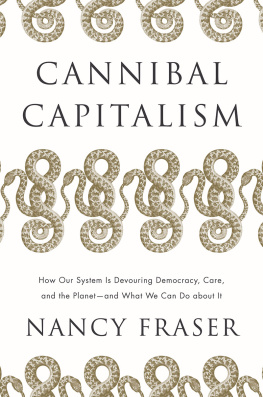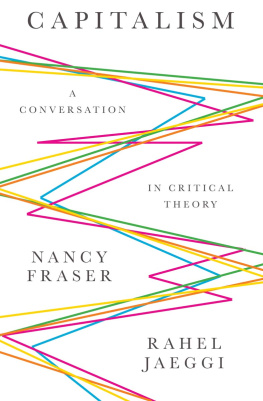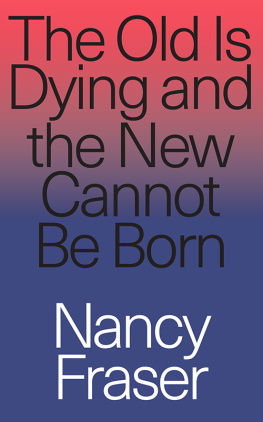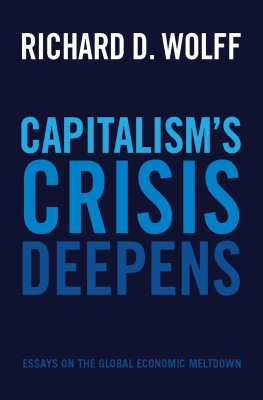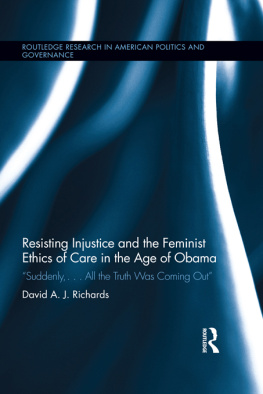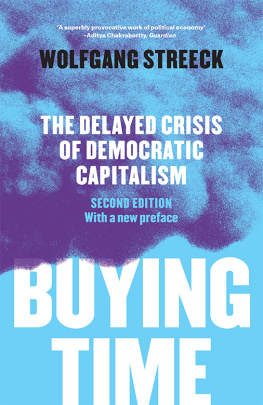Contents

Cannibal Capitalism
Cannibal Capitalism
How Our System Is Devouring
Democracy, Care, and the Planet
and What We Can Do about It
Nancy Fraser

First published by Verso 2022
Nancy Fraser 2022
All rights reserved
The moral rights of the author have been asserted
1 3 5 7 9 10 8 6 4 2
Verso
UK: 6 Meard Street, London W1F 0EG
US: 388 Atlantic Avenue, Brooklyn, NY 11217
versobooks.com
Verso is the imprint of New Left Books
ISBN-13: 978-1-83976-123-2
ISBN-13: 978-1-83976-125-6 (US EBK)
ISBN-13: 978-1-83976-124-9 (UK EBK)
British Library Cataloguing in Publication Data
A catalogue record for this book is available from the British Library
Library of Congress Cataloging-in-Publication Data
A catalog record for this book is available from the Library of Congress
Typeset in Sabon by MJ & N Gavan, Truro, Cornwall
Printed in the US by Maple Press
for Robin Blackburn and Rahel Jaeggi,
indispensable dialogue partners and dear friends
Contents
It is common to think of a book as the fruit of its authors individual labor. But that view is deeply misleading. Virtually every writer relies on a host of enabling background conditions financial support and library access, editorial guidance and research assistance, collegial criticism and inspiration, encouragement from friends, and care from intimates and family members. These constitute the hidden abodes of authorship, to invoke a phrase that plays a key role in the pages that follow. Too often relegated to the backstage, while the author preens in front, they are indispensable conditions for a books publication. Without them it could not see the light of day.
Clearly, a book that theorizes the hidden supports of capitalist production must acknowledge its own underpinnings. These came in many forms and from many sources. On the institutional front, the New School for Social Research provided a flexible teaching arrangement, a year of sabbatical leave, and (most important of all) an environment of intellectual vibrancy. Dartmouth College hosted me as Roth Family Distinguished Visiting Scholar in 201718 and later gave me a second academic home with a superb library, generous funding, and accomplished colleagues.
Several other institutions gave me precious time and collegial surroundings in which to develop the ideas in this book. Warmest thanks to Jude Browne and the University of Cambridge Centre for Gender Studies; to Michel Wieviorka and the Collge dtudes mondiales; to Rainer Forst and the Justitia Amplificata Centre for Advanced Studies, Frankfurt, and the Forschungskolleg Humanwissenschaften, Bad Homburg; to Hartmut Rosa and the Research Group on Post-Growth Societies, Friedrich-Schiller-Universitt, Jena; and to Winfried Fluck, Ulla Haselstein, the Einstein Foundation of Berlin, and the JFK Institute for American Studies, Frei Universitt, Berlin.
I relied throughout on the research skills and camaraderie of an extraordinary group of graduate assistants. My heartfelt gratitude goes to Blair Taylor, Brian Milstein, Mine Yildirim, Mayra Cotta, Daniel Boscov-Ellen, Tatiana Llaguno Nieves, Anastasiia Kalk, and Rosa Martins.
Several journals, but especially New Left Review and Critical Historical Studies, gave me the precious opportunity to circulate early accounts of the ideas expounded here and to receive feedback that helped me refine them. The specifics of my debts to them and to others who published previous formulations of these ideas are acknowledged below.
Verso provided the editor Ive always dreamed of in Jessie Kindig, whose enthusiasm, creativity, and way with words made all the difference. Also at Verso, production editor Daniel OConnor and copyeditor Stan Smith transformed a messy and much revised manuscript into a finished, error-free set of pages. Under the direction of Melissa Weiss, David Gee designed a standout cover, at once elegant and (dare I say) biting.
Behind this book, too, stands the indispensable support of colleagues and friends. I have thanked some of them in the notes to individual chapters, where their influence loomed especially large. But some have shaped and inspired my thoughts more broadly and over the longer haul. Among these steadfast companions and dialogue partners, I thank Cinzia Arruzza, Banu Bargu, Seyla Benhabib, Richard J. Bernstein, Luc Boltanski, Craig Calhoun, Michael Dawson, Duncan Foley, Rainer Forst, Jrgen Habermas, David Harvey, Axel Honneth, Johanna Oksala, Andreas Malm, Jane Mansbridge, Chantal Mouffe, Donald Pease, the late Moishe Postone, Hartmut Rosa, Antonia Soulez, Wolfgang Streeck, Cornel West, and Michel Wieviorka.
Two more, to whom this book is dedicated, were in my thoughts and heart throughout the writing. I thank Robin Blackburn, on whose erudition, insight, and kindness I relied again and again; and Rahel Jaeggi, my true partner in conversation, with whom many of the ideas presented here were originally developed and later improved.
Lastly, there is Eli Zaretsky, whose support for this book was so profound, multi-faceted, and pervasive as to defy any summary statement. Lets just say that Cannibal Capitalism wouldnt exist without his probing intelligence, largeness of vision, and sustaining love.
Earlier versions of several of these chapters have been previously published and appear here in revised form, with permission from their original publishers.
An earlier version of chapter 1 was delivered as the 2014 Diane Middlebrook and Carl Djerassi Lecture at the University of Cambridge on February 7, 2014, and later published in New Left Review, issue 86 (2014), as Behind Marxs Hidden Abode: For an Expanded Conception of Capitalism. Its arguments went through a baptism of fire, and came out the stronger for it, through challenging discussions with Rahel Jaeggi, many of which are recorded in our coauthored book Capitalism: A Conversation in Critical Theory, edited by Brian Milstein (to be republished by Verso in April 2023). Thanks again to Jaeggi for her probing intelligence and warmhearted friendship.
An earlier version of chapter 2 was first delivered as the presidential address at the one hundred fourteenth Eastern Division meeting of the American Philosophical Association in Savannah, Georgia, on January 5, 2018, and later published in Proceedings and Addresses of the American Philosophical Association, volume 92 (2018), as Is Capitalism Necessarily Racist? I am grateful to Robin Blackburn, Sharad Chari, Rahel Jaeggi, and Eli Zaretsky for helpful comments on this chapter, to Daniel Boscov-Ellen for research assistance, and especially to Michael Dawson for inspiration and stimulation.
An earlier version of chapter 3 was first delivered as the thirty-eighth annual Marc Bloch Lecture at the cole des hautes tudes en sciences sociales in Paris on June 14, 2016, and later published in New Left Review, issue 100 (2016), as Contradictions of Capitalism and Care. Many of its arguments were developed in conversation with Cinzia Arruzza and Johanna Oksala, to whom I am deeply grateful.
Earlier versions of chapter 4 were delivered in Vienna as the inaugural lecture of the first Karl Polanyi Visiting Professorship on May 4, 2021, as Incinerating Nature: Why Global Warming is Baked into Capitalist Society, and published in New Left Review, issue 127 (2021), as Climates of Capital: For a Trans-environmental Eco-socialism.

